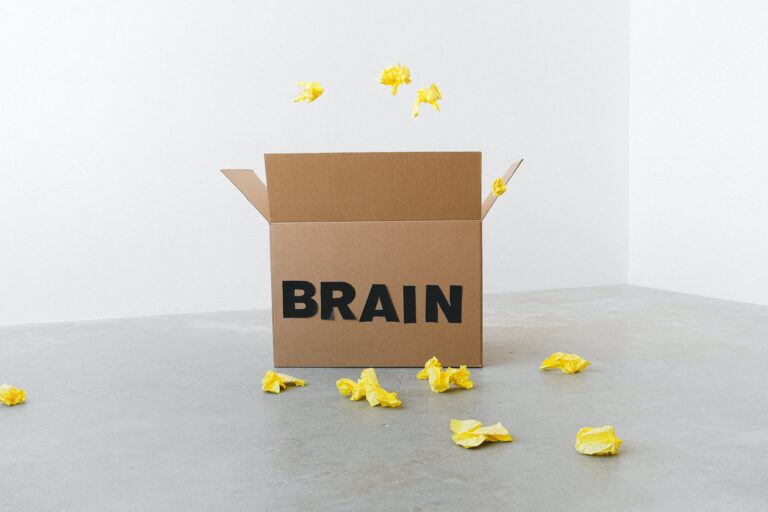Mojza Blog
Improving Memory Retention
By Zunaira Faisal | 10 FEB 2024

We often find ourselves in a situation where, despite studying diligently at the start of the year, we struggle to recall the content we spent our precious time memorizing when exams are approaching. This further adds to the exam stress that students are already dealing with. Now, does that mean you have the memory of a goldfish? Not necessarily. The root of the problem often lies not in the strength of one’s memory but rather in how one retains the information. Luckily, we have compiled a list of effective strategies that can help you improve your memory retention and excel in your exams without the fear of having a blank mind during the paper!
Make Use of Mnemonic Devices
A frequently encountered example of a mnemonic device involves associating music or rhythms with the ABCs to aid children in memorizing them. Another widely used technique, used by numerous students, is BODMAS, an acronym for Brackets, Order, Division, Multiplication, Addition, and Subtraction. Just like this, students can make up meaningful stories to remember certain historical facts or acronyms to remember names and dates, etc. Here’s a list of mnemonics for you to utilise in your academic journey.
Visualize It
For most students, text alone can get quite monotonous so they tend to zone out while studying, consequently missing crucial information. To address this issue, most individuals rely on visual cues. These are simple prompts to guide a person’s attention to an important part of the text. Visual cues can be made by highlighting certain parts of the text that need memorization, using borders, symbols, etc. This can also be used by using different colors to group ideas together. Another way of using visualization when memorizing is to make mind maps, flow charts, figures, or graphs. Read along as we break down all these devices in detail in our blog on the most effective study techniques.
Get Better Sleep
Scientists believe that memories are stored as short-term first and then converted into long-term memories during sleep. A study published in 2014 shows that learning something new leads to physical changes in the brain. If sleep deprived, it experiences less dendritic growth than when it’s well rested. Sufficient sleep not only helps with this vital development of the brain but also significantly improves memory retention. Therefore, students should prioritize creating a study schedule that allows them to get 6-8 hours of sleep, as it significantly aids in memory consolidation.
Structure and Organize
Research has found that structured revision is far more memorable and effective than revising randomly or in a disorganized manner. Our mind stores information in groups and clusters, so students can take advantage of this by organizing the content that they’re studying. It’s possible to do this by grouping related or similar concepts and terms. This is also known as ‘chunking’. The process involves grouping meaningful bits of information into clusters, which offers several advantages. This not only facilitates a more manageable revision of the study materials but also enhances overall memorability. Read more on the technique of ‘chunking’ here.
Avoid Multitasking
As students, it is often difficult to score well on assignments while also keeping up with deadlines. This is why many of them resort to multitasking which not only affects the quality of their work but also how well they remember it. It has been proven time and time again that multitasking or being distracted while studying diverts your focus, which in turn affects memory. The simple and effective solution to this is to focus solely on a single task instead of multiple at once while studying.
Practice Active-Recall
Several students have faced the issue that while they prepare the best they can for their exams and memorize everything, they have trouble recalling that information under test conditions. Instead of passively re-reading the material, an excellent method is active recall. This is an evident based study technique that involves actively retrieving information from memory. Not only does this technique help in memorizing information but also increases recall speed during an exam.
While you may think you suffer from a bad memory, in most cases, it’s just ineffective memorisation techniques. We hope these methods will assist you while preparing for your exams. Good luck!
Acknowledgements
Author: Zunaira Faisal
Proofreaders: Syed Muhammad Shaheer Ali
Recent
Mojza
About Mojza
Mojza is a student-led organisation aiming to provide quality resources for Cambridge students.
Other than such weekly blogs, Mojza offers resources for your O levels, IGCSE, and A levels journey. We have notes from reputable teachers, our own original notes and a library of other helpful websites and resources!
Check out our home page!
Published: 10 February 2024
Last Updated: 10 February 2024
Written By Zunaira Faisal
